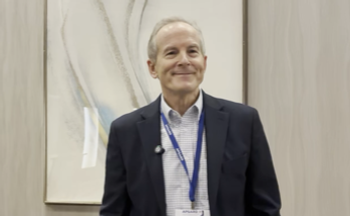
A Practical Guide to Eliciting Positive Change in Patients Through Motivational Interviewing
An expert discusses motivational interviewing at the 2023 Annual Psychiatric Times™ World CME Conference.
CONFERENCE REPORTER
“In motivational interviewing, rather than confronting ambivalence, we explore it and help a patient resolve it, which means, rather than saying, ‘This person is unmotivated,’ say, ‘Well, for what is this person motivated? What does this person want?’”
Brian Hurley, MD, MBA, FAPA, DFASAM, delivered a presentation on motivational interviewing at the
In his presentation, Hurley focused on the ways clinicians can apply the spirit of motivational interviewing when working with patients who are ambivalent about making changes in their lives. He also discussed the 4 metaprocesses of motivational interviewing; some ways clinicians can identify and selectively reinforce the change talk that is elicited during clinical situations; and some additional opportunities for training and practice of motivational interviewing skills.
Hurley discussed the nature of change, stating that change is natural, it occurs all the time, and it can be facilitated by treatment and interactions between clinicians and patients. Ambivalence—which clinicians may often encounter when working with patients—is also normal, it needs to be explored rather than confronted, and resolving it can be the key to facilitating change.
Hurley also emphasized the difference between change talk and sustain talk. He recommended that clinicians strengthen change talk because, as an individual argues on behalf of one position, the individual will become more committed to that position. He also recommended that clinicians soften sustain talk, as the more sustain talk is evoked during a counseling session, the more likely the patient will be to continue the status quo.
Hurley also described the “spirit” of motivational interviewing, which includes compassion, acceptance, partnership, and empowerment between clinicians and patients, and discussed the 4 processes involved in motivational interviewing.
These processes include (1) planning, or how clinicians and patients will proceed; (2) evoking, or why clinicians and patients are going to proceed in this way; (3) focusing, or where clinicians and patients are planning to go; and (4) engaging: clinicians and patients walking together throughout the journey; this is the most important step in motivational interviewing.
Finally, Hurley shared the core skills associated with effective motivational interviewing, which include asking open-ended questions, affirming, reflecting (in both simple and complex ways), summarizing, and informing and advising (with the patient’s permission). Hurley also some practical tips for clinicians for eliciting change talk, including:
- Ask evocative questions.
- Explore decisional balance.
- Elaborate.
- Query extremes.
- Look both backward and forward.
- Explore goals and values.
Hurley ended the presentation by reminding listeners that engaging patients is the most important step in motivational interviewing. He also quoted 17th-century philosopher Blaise Pascal as a reminder for clinicians when trying to elicit positive change in their patients through motivational interviewing: “People are generally better persuaded by the reasons which they have themselves discovered than by those which have come into the mind of others.”
Visit
Newsletter
Receive trusted psychiatric news, expert analysis, and clinical insights — subscribe today to support your practice and your patients.







